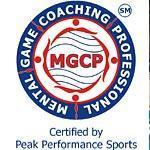
Mental Game Coaching Professional Program
I’ve receive a lot of questions from both sports psychology students and professionals who want to do mental coaching with athletes. Here’s a recent example:
“I completed my MS in sport psychology and am currently finishing my doctorate in clinical psychology. I’m wondering if you have any tips that would help me get from where I am as a grad student to where you are…”
When I was a grad student at The University of Virginia in the late 80s, I was told to do as much research as I could so I could publish journal articles.
However, that only served the needs of the University and not my career as an applied mental game coach.
Advisors pushed students to publish journal articles. I did that more than any other student at the time. I published four journal articles as a graduate student.
___________________________________
MGCP Spring 2010 Course Update
Late registration for the Spring 2010 MGCP course,
starting this month, ends February 8, 2010.
____________________________________
Publishing journal articles is a great goal, if you want to teach sports psychology at a University. I did teach until I discovered my passion for working with athletes on the mental game.
I left teaching and started Peak Performance Sports after teaching for two years.
I did not take the clinical psychology route. Instead, I earned a doctorate in exercise science and kinesiology (fancy terms today for physical education). So the clinical route is a different from the track I did.
But I think the most important key to success as a mental coach is being effective with athletes and helping them succeed.
Why? If you are successful with one athlete, he’ll tell others about how you helped. Word of mouth is very powerful, especially in our work.
But how can you be effective with athletes when you are still a student or just out of school?
- You must have a *system* for doing mental coaching with athletes.
- You must ask the right questions to help you understand your student’s mental game needs.
- You must be effective with your students – help them improve the mental game as they improve their physical game.
- You must know how to help your athletes apply mental skills education to competition.
- You must work within the framework of team coaches to get access to athletes.
I teach you all my secrets for being an effective mental game coach in my MGCP certification program. We have a new course starting this month…
We need to act fact. Late registration ends February 8, 2010. Learn my complete system for doing mental coaching with athletes!
If you have not done so, please complete an application at the MGCP website:
If you have already submitted your MGCP application, please email me to request the Spring 2010 enrollment forms.
Note: The first five people to lock in their seats will get preference.
Please call me at 888-742-7225 if you have any questions about the course.
Your Master Mental Game Coach,
Patrick J. Cohn, Ph.D.
p.s. I’d like to share a statement from an MGCP grad about the course:
“Dr. Cohn’s MGCP certification program was exactly what I needed. I searched long and hard to find a program just like this. His specialized MGCP training and certification program provided me with the extra “edge” and mental game tools I needed to expand my practice into sports and improve my mental coaching
programs for athletes.”
~John R. Ellsworth, MGCP
Boost Your Self-Confidence With Mental Game Coaching!
Master mental game coach, Dr. Patrick Cohn, can help you or your athlete(s), ages 12 and up, overcome mental game issues with personal coaching.
You can work with Dr. Patrick Cohn himself in Orlando, Florida or via Skype, FaceTime, or telephone. Call us toll free at 888-742-7225 or contact us for more information about the different coaching programs we offer!
What are our students saying?
“WOW!!! What a week I had. I was able to perform with a confidence that allowed my style to shine through–no more entering the arena with that “deer in the headlights” look or feeling. I stopped evaluating myself while I was performing, and I actually left the arena after my patterns feeling like I had experienced a lot of fun. Thank you so much.”
~Julia Dreyer, National Champion Equestrian
